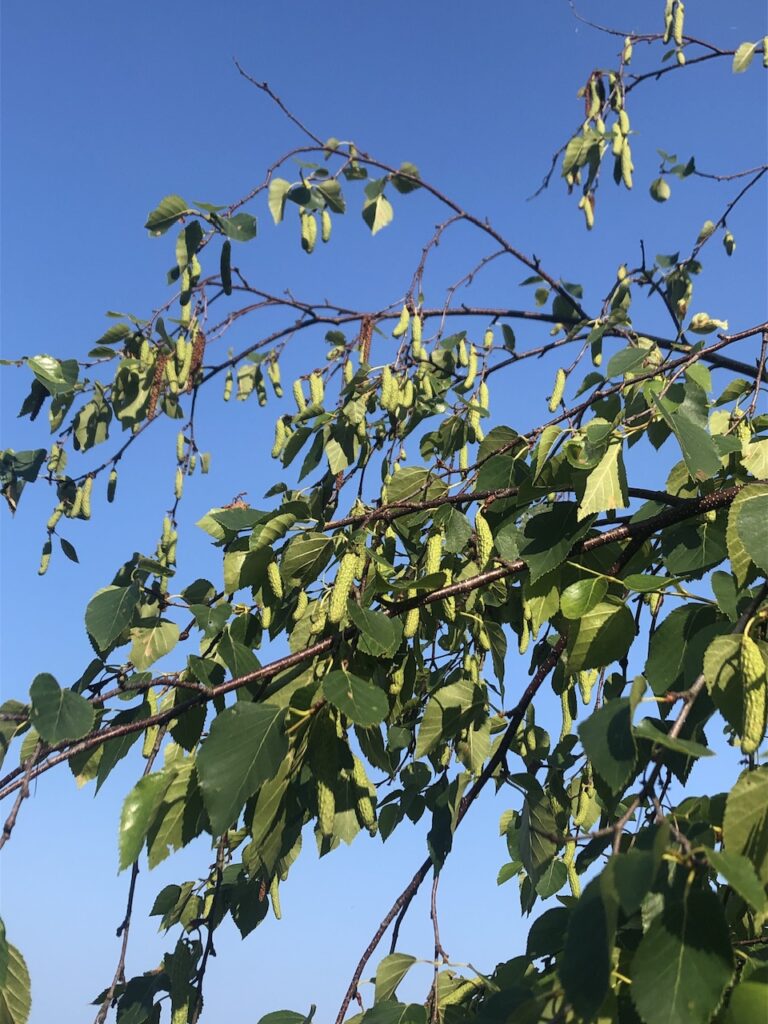
The top of my birch tree is having problems. Is this a symptom of birch tree borer? I am watering it every other day when it’s hot. Should I feed it also? Many thanks.
Thank you for contacting Toronto Master Gardeners. Birch trees are a beautiful addition to a garden.
Like many other trees, birch trees start to show signs of stress beginning at the top of the tree which is furthest from the roots. Birch trees like moist, cool, partly shady conditions which they often don’t receive in urban locations; however, you can take several steps to simulate some of these conditions in your garden. Organic mulch, like wood chips or pine cones at the base of the trunk, helps to keep the soil cool. In addition, as you have been doing, birch trees need plenty of water. The water needs to be able to seep down into the roots. Soak the soil weekly from half-way between the drip line to the trunk and then the same distance beyond the drip line. (The drip line refers to a vertical line drawn from the outermost ends of the branches to the ground.) Watering next to the trunk does not ensure that the water gets to the roots.
There are a variety of reasons why birch trees experience dieback like your tree. One stressor is lack of water but there are a variety of other reasons which can also affect trees, such as Verticillium wilt (caused by soil fungus), girdling roots, and poor soil nutrients.
In terms of pests, Bronze Birch Borer is a common pest and is indicated by dead branch tips, yellow or orange droopy leaves at the top of the tree, and large exit holes in the trunk. This article from Purdue University describes this pest and treatment in detail.
Birch Leaf Miner is another common pest and this Gardening Guide from the Toronto Master Gardeners’ website provides a detailed description of this insect as well as steps for gardeners to take. Leaf Miner causes blotched areas on the leaves eventually causing the leaves to turn brown. Leaf Miner doesn’t necessarily kill the tree but does cause it to be more susceptible to other stressors.
The same Gardening Guide also provides details on how to maintain healthy birch trees on an ongoing basis. These include fertilizing and pruning.
Finally, licensed arborists have in-depth knowledge about trees and can give you more precise information about what is affecting your tree. They also provide services and remedies which may be better performed by a professional, especially if your tree is large.
I hope this answer provides you some details which are useful. I wish you the best of success with this gardening project.

